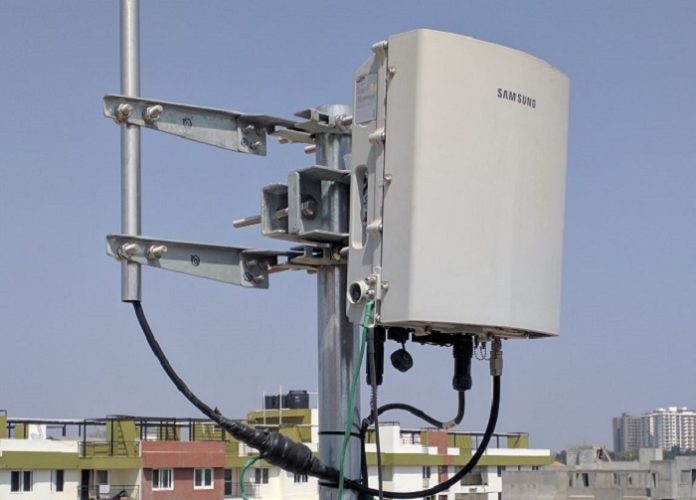Wireless providers and cities reached an agreement on legislation Tuesday that ends their dispute over franchise agreements that the telecoms said would hinder their ability to provide faster service for customers.
The telecommunications giants – AT&T, Sprint and Verizon – had asked lawmakers to bar cities from forcing them to sign franchise agreements they said hurt their ability to expand their networks with so-called small cell technology.
They’ve been engaged in a nearly three-week battle at the Capitol with cities who said the telecommunications companies were overstating their claims about the harm they suffer because of franchise agreements.
The cities said franchise agreements did not prevent the deployment of small cell technology – light-weight, low-power devices placed in areas where customers experience connectivity problems.
Ultimately, the two sides agreed on a bill that would still bar franchise agreements, but allowed cities to require so-called small cell facility deployment agreements or master license agreements.
The bill gives cities control over the public right-of-way through those types of agreements as well as through other permitting requirements.
Ultimately, the League of Kansas Municipalities was neutral on the bill, which the Senate approved unanimously Wednesday.
Erik Sartorius, executive director of the Kansas municipal league, still wondered why the telecoms needed a change in the law.
“We still question the necessity of the legislation given how most providers in the wireless industry have been moving forward with deployment and reaching franchise agreements with cities that have sought them,” Sartorius said.
The cities, he said, were able to finally cut a deal that should give them the ability to protect the public right-of-way.
AT&T spokeswoman Molly Kocour Boyle said there was a significant difference between signing a franchise agreement and the master license agreement enumerated in the bill.
There is nothing regulating a franchise agreement in state law, meaning cities would be open to impose any number of rules and fees such as potentially taxing the companies based on gross receipts, she said.
Basically, it “opens up a can of worms,” she said.
“There are no guardrails saying, ‘You can do this and you can’t do this,'” she said. “Under (cities) home rule authority they can basically do whatever they want.”
The telecom companies, during a hearing earlier this month, told legislators that cities were doing an end-around a law passed in 2016 that was intended to streamline and expedite deployment of small cell technology.
Usually attached to utility poles, traffic lights and even on buildings, the small cells are now the target of cities seeking to charge franchise fees for their deployment, the telecommunication companies said.
The 2016 law — called the Wireless Siting Act — didn’t contemplate wireless franchise agreements. It opened the door for local governments to charge franchise fees for small cell deployment.
The companies said if they knew then what they know now, they would have tried to prohibit the wireless franchise agreements in the 2016 law.
















